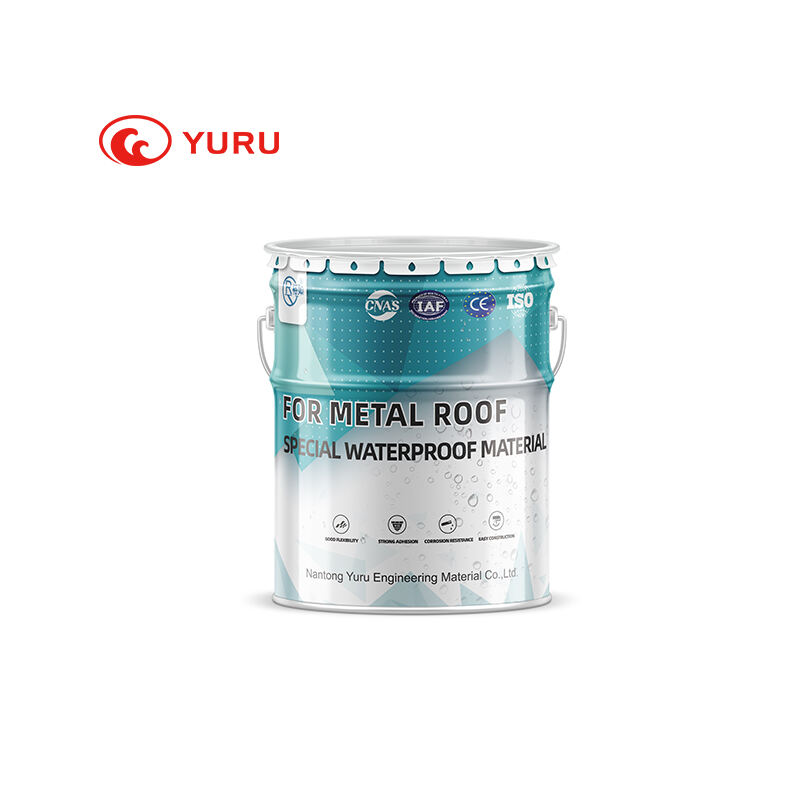พื้นที่เก็บของ พื้นที่เก็บของที่ทำจากคอนกรีต เป็นวัสดุที่ยอดเยี่ยมแต่ยังสามารถเปียกได้เมื่อเวลาผ่านไป การกันน้ำให้คอนกรีต ไม่ว่าคุณจะมีห้องใต้ดิน พื้นฐาน หรือลานจอดรถที่ทำจากซีเมนต์ การปกป้องจากน้ำเพื่อความคงทนถาวรก็เป็นสิ่งสำคัญมาก ดังนั้นวันนี้เราจะมาสำรวจ 10 วิธีที่มีประสิทธิภาพที่สุดที่คุณสามารถใช้เพื่อให้แน่ใจว่าโครงสร้างคอนกรีตของคุณปลอดภัยและมั่นคง
การกันน้ำแบบ ICE หรือ Cristalline: วิธีนี้ใช้ผลิตภัณฑ์ชนิดคริสตัลที่แทรกซึมเข้าไปในคอนกรีตและสร้างคริสตัลภายในรูพรุนของมัน คริสตัลดังกล่าวจะสร้างเกราะกันน้ำที่หยุดน้ำไม่ให้ซึมผ่าน การกันน้ำแบบคริสตัลมีความคงทนและตอบสนองตามธรรมชาติ โดยสร้างโครงสร้างคริสตัลที่จะปิดรอยแตกหรือช่องว่างใดๆ
การกันน้ำด้วยเบนโทไนต์: วิธีนี้ใช้สำหรับป้องกันโครงสร้างใต้ดิน เช่น เบนท์ของทางรถไฟฟ้าใต้ดิน เป็นต้น การกันน้ำด้วยเบนโทไนต์หมายถึงการทาผงเบนโทไนต์เป็นชั้นหนึ่งลงบนพื้นผิวคอนกรีต ซึ่งจะให้กำแพงกันน้ำที่ไม่สามารถซึมผ่านได้ และอนุญาตให้เพียงไฮโดรปั๊มผ่านไปได้ นอกจากนี้ เมื่อสัมผัสกับน้ำ เคลย์ชนิดนี้จะขยายตัวและป้องกันการซึมผ่านของน้ำเข้าสู่ผนังใต้ดินของเรา อีกทั้งระบบดังกล่าวยังคุ้มค่าและไม่มีส่วนประกอบที่เคลื่อนไหวหรือไฟฟ้า ทำให้ใช้งานได้จริง
อีกวิธีที่ได้รับการพิสูจน์แล้วเช่นกันคือการเทสารเคลือบเหลวลงบนพื้นผิวคอนกรีต ซึ่งจะสร้างเยื่อกันน้ำที่ทนทานและไม่สามารถซึมผ่านได้ ป้องกันน้ำจากการซึมผ่าน เนื่องจากเยื่อเคลือบเหลวสามารถยืดและเคลื่อนไหวไปพร้อมกับคอนกรีต จึงจะไม่แตกเหมือนระบบเยื่อแผ่นในพื้นที่ที่มีการเคลื่อนไหวหรือสั่นสะเทือน อีกทั้งยังติดตั้งง่ายและต้องการการบำรุงรักษาเพียงเล็กน้อย
แผ่นเยื่อป้องกันน้ำรั่วซึม: วิธีนี้รวมถึงการติดตั้งแผ่นเยื่อที่สามารถติดได้ด้วยตนเองหรือใช้วิธีไฟฉายลงบนพื้นผิวคอนกรีต ลิงก์จ่ายเงิน / อัปเดตล่าสุดเมื่อ 2021-04-30 แผ่นเยื่อดังกล่าวมีความหนาแตกต่างกันเพื่อสะท้อนถึงความแข็งแรงและความทนทานต่อการเจาะหรือฉีกขาด เป็นวิธีที่มีประโยชน์มากในพื้นที่ที่สภาพภูมิอากาศอาจรุนแรง
การกันน้ำด้วยโพลียูรีเทน: เยื่อคล้ายยางจะถูกพ่นลงบนพื้นผิวคอนกรีต โดยชั้นเคลือบสามารถทำให้ยืดหยุ่นได้และกลายเป็นการปิดผนึกที่แข็งแรงซึ่งสามารถต้านทานการซึมของน้ำได้อย่างมีประสิทธิภาพ เนื่องจากสามารถต้านทานรังสี UV การเดินผ่านของคนจำนวนมาก และการสัมผัสสารเคมีได้เอง โพลียูรีเทนจึงเหมาะสำหรับพื้นในสถานที่อุตสาหกรรม สูตรนี้ใช้งานง่ายมาก แห้งเร็ว และสามารถใช้กับพื้นผิวแนวนอนได้
1) พิจารณาการใช้งานดีไซน์: ก่อนที่จะเริ่มทำการกันซึม สิ่งแรกที่ต้องคำนึงถึงคือผลกระทบของขนาดที่เหมาะสมกับวัตถุประสงค์ เพื่อให้สามารถระบุโครงสร้างได้อย่างชัดเจน เช่น การกันซึมในห้องใต้ดินที่อยู่อาศัยอาจแตกต่างอย่างมากจากการกันซึมในโรงงานอุตสาหกรรม เช่น โรงกลั่นน้ำมัน
การพิจารณาสิ่งแวดล้อม: ตรวจสอบการสัมผัสของคอนกรีตกับแสงแดด อุณหภูมิที่เปลี่ยนแปลง และฝน การประเมินนี้จะช่วยในการเลือกวิธีการที่ทนทานต่อสภาพแวดล้อมต่างๆ
พิจารณางบประมาณ: ราคาของผลิตภัณฑ์กันซึมเป็นปัจจัยหนึ่งที่จะกำหนดการซื้อของคุณ ตัวเลือกที่แพงกว่ามักจะมีความคุ้มครองมากกว่า แต่ผลิตภัณฑ์ควรอยู่ในงบประมาณของคุณ
ความคงทน: คุณต้องการให้การกันซึมของคุณใช้งานได้นานหรือไม่? คุณจำเป็นต้องมองหาผลิตภัณฑ์ที่มีอายุการใช้งานยาวนานและสามารถทนต่อเงื่อนไขภายนอกที่อาจกระทบต่อประสิทธิภาพของมัน
คำแนะนำสำหรับความสำเร็จ: ก่อนการใช้ผลิตภัณฑ์กันน้ำ การเตรียมพื้นผิวคอนกรีตให้เหมาะสมเป็นสิ่งสำคัญ เพื่อให้ได้ผลลัพธ์ที่ดีในการกันน้ำคอนกรีต เราขอแนะนำจากผู้เชี่ยวชาญของเรา:
การใช้สารกันน้ำ: ทำความสะอาดพื้นผิวคอนกรีตและเติมรอยร้าว ช่องว่าง หรือหลุมก่อนการใช้สารกันน้ำ ขั้นตอนแรกที่คุณต้องทำคือทำความสะอาดพื้นผิวด้วยการกำจัดฝุ่น สิ่งสกปรก หรือขยะออก
การผสมที่ถูกต้อง: ตรวจสอบให้แน่ใจว่าคุณผสมสารกันน้ำอย่างดีและตามคำแนะนำของผู้ผลิต (ตรวจสอบอย่างละเอียด เพื่อไม่ให้เกิดปัญหาการผสมที่ไม่สม่ำเสมอในบางพื้นที่)
เคล็ดลับ: วิธีการใช้สารกันน้ำ (ตรวจสอบทั้ง 7 ข้อ!) ใช้ตามคำแนะนำของผู้ผลิต และตรวจสอบให้แน่ใจว่าพื้นผิวถูกครอบคลุมอย่างดี
ข้อกำหนดการควบคุมคุณภาพ: ตรวจสอบกระบวนการเป็นระยะๆ ตรวจสอบเวลาแห้งและความบกพร่องทางคุณภาพเพื่อรับประกันความสำเร็จของโครงการ
การเลือกเครื่องป้องกันที่เหมาะสม
การเลือกลำดับความสำคัญของวิธีการกันน้ำที่ดีที่สุดบนคอนกรีตสามารถได้รับอิทธิพลจากปัจจัยต่าง ๆ แม้ว่าระบบกันน้ำแบบคริสตัลจะเป็นวิธีแก้ปัญหาในระยะยาวที่ใช้งานได้จริงและเหมาะสำหรับการใช้งานในอุตสาหกรรมมากกว่า แต่ bentedonite ก็ยังให้ระบบแบบพาสซีฟที่มีคุณภาพและประหยัดต้นทุนสำหรับโครงสร้างใต้ดิน ในกรณีที่โครงสร้างอาจเคลื่อนที่ การใช้สารเหลวหรือแผ่นเยื่อกันน้ำเป็นทางเลือกที่เหมาะสม และสำหรับพื้นที่ที่จะต้องรองรับการจราจรหนักและสารเคมี ควรใช้โพลียูรีเทน
เพื่อสรุป
การรับรองว่าคอนกรีตของคุณจะคงทนนานที่สุดเท่าที่เป็นไปได้หมายถึงการทำให้แน่ใจว่าคอนกรีตแห้งตลอดช่วงชีวิตการใช้งานส่วนใหญ่ เราได้รวบรวม 10 วิธีกันซึมยอดนิยม เช่น การกันซึมแบบคริสตัลไลน์ เบนโทไนท์ และโพลียูรีเทน กันซึมแบบเคลือบฟิลม์เหลว เป็นต้น เพื่อให้แน่ใจว่าคอนกรีตของคุณได้รับการป้องกันอย่างเหมาะสม คุณเพียงแค่ต้องคำนึงถึงโครงสร้างเฉพาะ ผลกระทบจากสภาพแวดล้อมที่แตกต่างกัน ข้อจำกัดด้านงบประมาณ และความทนทานในระยะยาวของโครงการ เพื่อที่คุณจะสามารถเลือกผลิตภัณฑ์กันซึมชนิดหนึ่งจากหลากหลายตัวเลือกสำหรับการป้องกันคอนกรีต



